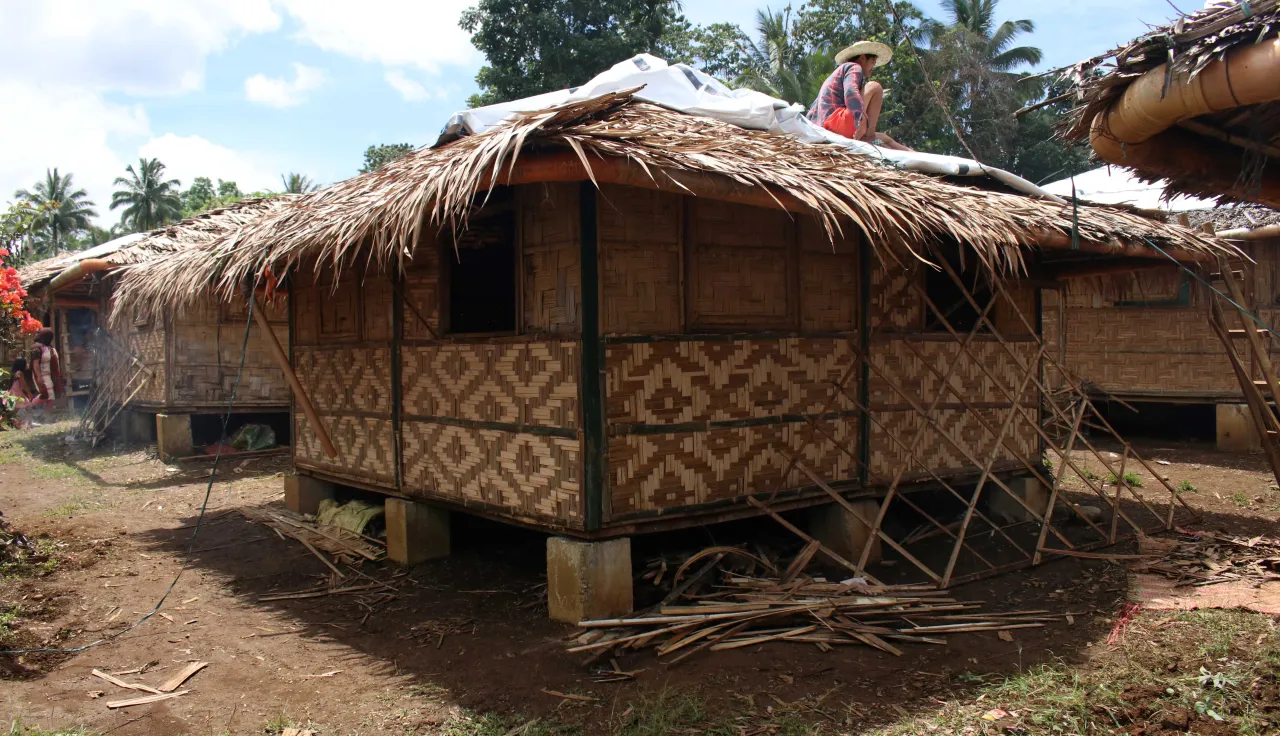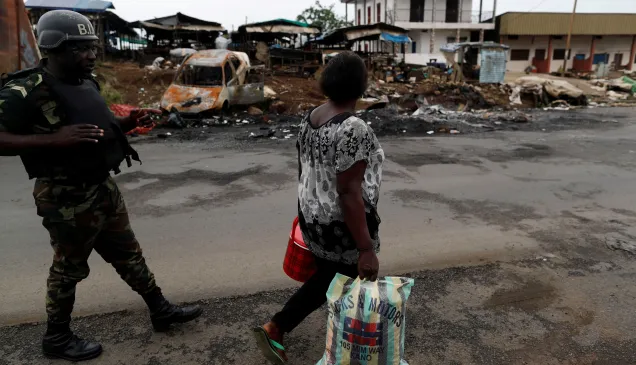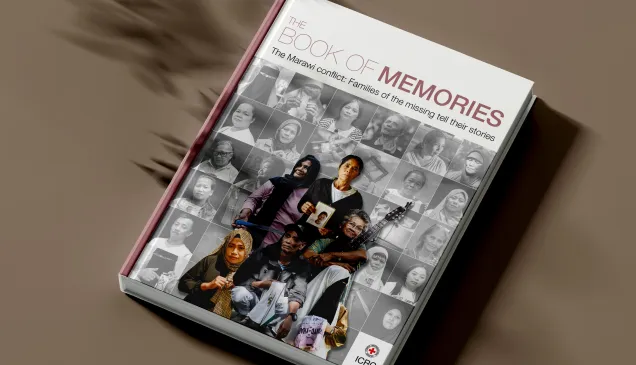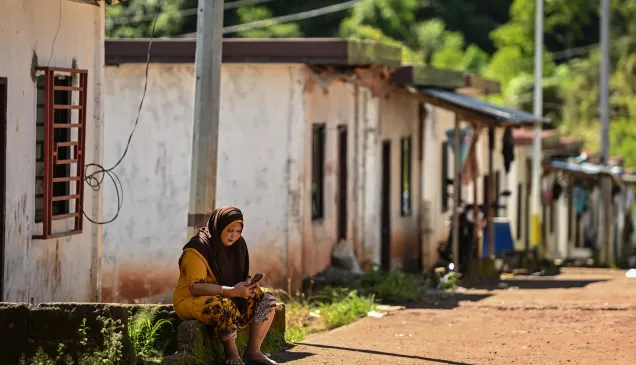Safe amid storms: Repairing bamboo houses and improving water access in Marawi

Through a cash-for-work programme, displaced families repaired their bamboo houses at the Bito Buadi Itowa village, a transitional shelter for people affected by the Marawi conflict.
Bahay kubo or native bamboo houses have sheltered hundreds of people displaced by the armed conflict in 2017 in Marawi City, southern Philippines.
They were built under the Bahay Pag-asa or House of Hope Project – a joint government and private sector initiative – in Bito Buadi Itowa villlage, the first transitional site for people affected by the Marawi conflict.

50 bamboo houses that shelter 241 people at the Bahay Pag-asa (House of Hope) transitional shelters in Bito Buadi Itowa, Marawi City, are being repaired through the ICRC's cash-for-work programme.
Made of light materials like nipa palm, wood, and bamboo, the houses were modeled after the transitional houses of the Tarlac Heritage Foundation.
But over time, the houses in Bito Buadi Itowa have deteriorated due to wet weather.
“After years of living here, the roof and walls were eventually damaged. Our belongings get soaked when it rains,” said 40-year-old Ashira Palawan who has been staying at the transitional site since it was established.
Aside from the damaged houses, the lack of reliable water supply prompted the displaced community to live with their relatives in neighboring towns and in other transitory shelters.
Better access to water
Since the early days of the conflict, the ICRC has been supporting the displaced community in Bito Buadi Itowa with access to safe and clean water.
We have been working with the Philippine Red Cross (PRC), our primary partner in the country, in providing daily water trucking services at the transitional site.
Understanding that families need a more reliable water supply, we developed the existing water system by providing spare pumps for a shallow well and by improving the pipelines and electrical system.
Residents can now have access to water 24/7. On top of their concerns about the COVID-19 pandemic and need for personal space, better access to water encouraged displaced families to return to Bito Buadi Itowa.
However, their bahay kubo were still damaged.
“We tried covering the roofs with tarpaulin, but it was not enough [to prevent rainwater from dripping]. We also did not have money to buy materials because of our tight budgets,” said Ashira.
Livelihood opportunity and shelter repair
After conducting assessments and coordinating with stakeholders, we provided materials for the installation of new roofs and the repair of damaged walls and floors of 50 bamboo houses that shelter 241 people.
The walls are made of sawali or woven split-bamboo mats, while the new roofs are made of nipa sheets and are netted to prevent decay.
“When we assessed the shelters, rain was still dripping inside causing further damage to the unprotected walls and floor despite the tarpaulins installed,” shared Nicolas Laurent, ICRC water and habitat engineer.
“With reliable water supply and repaired shelters, these families can now return to the bamboo houses and start again,” he added.

On 6 September 2021, 100 beneficiaries from 50 households at the Bito Buadi Itowa transitory shelters received their wages from the 10-day cash-for-work programme.
To financially help them, we commissioned the families to repair the bamboo houses through a cash-for-work scheme that we implemented with the support of PRC volunteers.
Two representatives from each household – one skilled to do the main construction work and the other helping as an assistant – were paid for their work from 11 to 22 August. And on 6 September, one hundred beneficiaries from 50 households received their wages.
“Instead of paying for contractors to do the labor, we commissioned these families. While their shelters are being repaired, they are also earning in the process,” shared Hussien Abubacar of the ICRC’s economic security team.
We provided all the tools and equipment needed by the workers, such as bolo knives, claw hammers, washable gloves, and sunhats.

Starting again
For Ashira, the repair of their shelters and the improvement of their water supply system were essential for the return of the displaced community.
“Staying with relatives who are also evacuees was difficult for us and for them. These projects are very timely,” she said while getting emotional.
“It’s important for us to feel that we are not alone in our struggles especially in these trying times. We are grateful for all the help we receive,” she added.
The Bito Buadi Itowa transitional shelter is getting back to life. Small businesses have opened and tricycles are parked around the village. Because of the reliable water supply, gardens are being cultivated and fences are being put up too.
Most of all, families can stay safe and dry in their bamboo houses amid heavy rains.
“These are just what we needed to start again,” Ashira said.
Text and photos by Amer Hassan Sanggacala, ICRC communication officer based in Iligan City.



